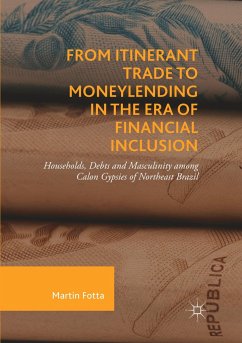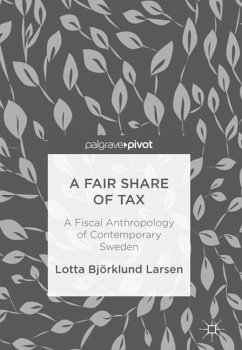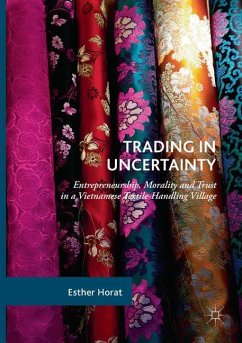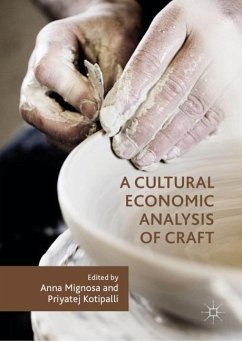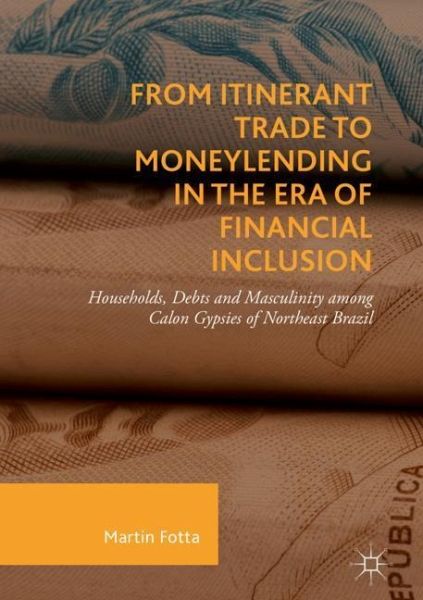
From Itinerant Trade to Moneylending in the Era of Financial Inclusion
Households, Debts and Masculinity among Calon Gypsies of Northeast Brazil
Versandkostenfrei!
Versandfertig in 6-10 Tagen
83,99 €
inkl. MwSt.
Weitere Ausgaben:

PAYBACK Punkte
42 °P sammeln!
This book analyses how Calon Gypsies in Brazil have responded to global financial transformations and shifted their economic practices from itinerant trade to moneylending. It also explores their role as ethnic credit providers, offering rare insight into the financial lives of poor and lower-middle-class Brazilians.More broadly, this volume examines how ethnic difference is created in a context where fixed and collective structures supporting ethnic identity are missing. It is important reading for economic anthropologists, cultural economists and all those interested in processes of financia...
This book analyses how Calon Gypsies in Brazil have responded to global financial transformations and shifted their economic practices from itinerant trade to moneylending. It also explores their role as ethnic credit providers, offering rare insight into the financial lives of poor and lower-middle-class Brazilians.
More broadly, this volume examines how ethnic difference is created in a context where fixed and collective structures supporting ethnic identity are missing. It is important reading for economic anthropologists, cultural economists and all those interested in processes of financialisation from a local perspective, as well as those fascinated by informal economies, how exchange and debt relate to social and political marginality, and how financial credit becomes 'domesticated' by communities.
More broadly, this volume examines how ethnic difference is created in a context where fixed and collective structures supporting ethnic identity are missing. It is important reading for economic anthropologists, cultural economists and all those interested in processes of financialisation from a local perspective, as well as those fascinated by informal economies, how exchange and debt relate to social and political marginality, and how financial credit becomes 'domesticated' by communities.





